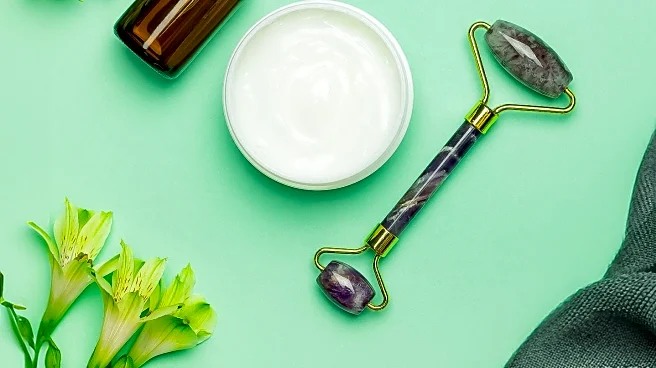What is the story about?
What's Happening?
A shift in wellness trends is emerging, characterized by a move away from competitive self-care practices towards small, daily moments of joy and comfort. According to Circana, this 'low-volume era' is marked by increased sales of home appliances like blenders and air purifiers, reflecting a return to home-centric behaviors seen during the pandemic. Emotional-companion technology, such as Casio's Moflin, is gaining popularity for its ability to ease loneliness and stress. The trend also includes functional skincare and skinification, which aim to boost confidence and mood. This shift is accompanied by a rise in adult play, with games like Mahjong and Pokémon cards becoming popular for their cognitive and emotional benefits.
Why It's Important?
The transition to a post-hustle era of self-care signifies a broader cultural shift towards prioritizing mental and emotional well-being over performance-driven wellness. This change impacts various industries, including home goods, technology, and beauty, as consumers seek products that enhance comfort and emotional health. The focus on home and personal rituals may influence market trends, driving demand for products that support a balanced lifestyle. As major employers struggle to bring workers back to offices, this trend could also affect workplace dynamics and employee expectations. The emphasis on emotional wellness and mindful play highlights a growing recognition of the importance of mental health in overall well-being.
Beyond the Headlines
The post-hustle era of self-care reflects deeper societal changes, including a reevaluation of work-life balance and the role of technology in personal well-being. The rise of emotional-companion tech and adult play suggests a shift towards more inclusive and diverse definitions of wellness. This trend may lead to long-term changes in consumer behavior, with increased focus on products and practices that promote emotional health. The integration of wellness into everyday life challenges traditional notions of self-care, encouraging individuals to find joy and comfort in simple, non-competitive activities. As this movement gains momentum, it could reshape cultural attitudes towards health and wellness.
















